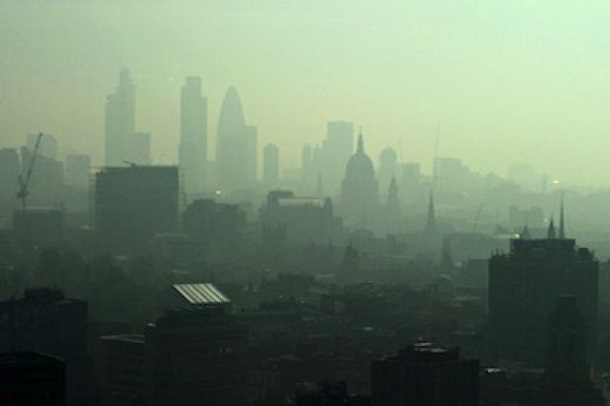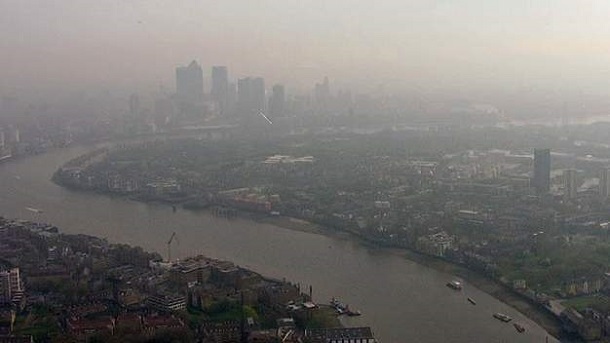Air quality is expected to plummet to its lowest possible level in parts of the UK today, as the country continues to feel the effects of desert sandstorms.
The elderly, people with lung problems and adults with heart conditions have been told to avoid strenuous physical activity, as plumes of dust blown in from the Sahara and deposited by rain send air pollution soaring.
London and the South East, including parts of East Anglia, Kent and Essex, are expected to be worst hit.
However, high pollution levels are expected to spread across much of England and Wales during the course of the day.
A spokesman for the Department for Environment Food and Rural Affairs (Defra) said the effects will be felt anywhere south of a line stretching from Merseyside to The Wash.
It will be the second day in a row the country has been hit by heightened smog levels.
On Tuesday, Defra recorded “high” to “very high” air pollution levels across East Anglia, parts of southeast England and around the Humber.
The agency spokesman told media: “The high level of air pollution this week is due to a combination of local emissions, light winds, pollution from the continent and dust blown over from the Sahara.”
Many in the country have woken up over the last few days to see a thin level of red sand coating cars and streets.
However, unlike the Icelandic volcanic ash cloud of 2010, which caused airports across Europe to shut down amid fears dust could cause engine damage, air traffic controllers said they were “not aware” of any likely disruption to flights.
A spokesman for the Met Office said: “A large amount of sand and dust was swept up by storm winds in the desert, around 2,000 miles away in northwest Africa.
“The airborne particles were blown north to the UK, where they combined with our warm air and were deposited during showers.”
Forecaster Paul Hutcheon added: “We usually see this happen several times a year when big dust storms in the Sahara coincide with southerly winds to bring that dust here.
“More dust rain is possible during showers expected later this week.”
According to the World Health Organisation (WHO), air pollution is the world’s most serious environmental health risk.
It found pollution, ranging from cooking fires to car fumes, was linked to seven million deaths in 2012 – roughly one in eight.
The biggest pollution-related killers were heart disease, stroke, pulmonary disease and lung cancer, the WHO said.
England is not the only place to be hit by increased smog levels recently.
Last month, Paris imposed a day-long driving ban after pollution particles in the air exceeded safe levels for five straight days.
Air quality is expected to return to higher levels by the weekend.
[adrotate group=”13″]


